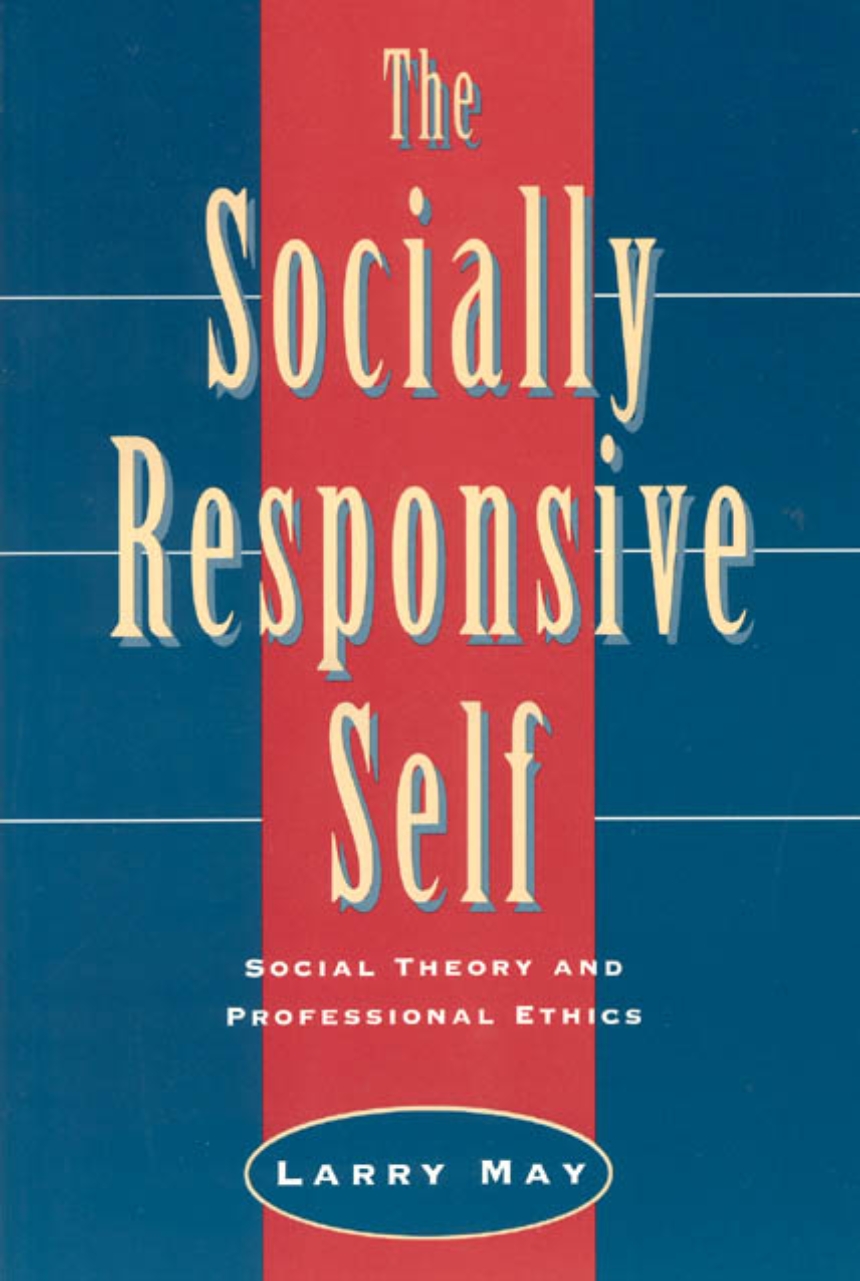The Socially Responsive Self
Social Theory and Professional Ethics
Larry May argues that socially responsive individuals need not be self-sacrificing or overly conscientious. According to May, a person’s integrity and moral responsibility are shaped and limited not just by conscience but also by socialization and moral support from the communities to which he or she belongs.
Applying his theory of responsibility to professional ethics, May contends that current methods of professional socialization should be changed so that professionals are not expected to ignore considerations of personal well-being, family, or community. For instance, lawyers should not place client loyalty above concerns for the common good; doctors should not place the physical well-being of patients above their mental and spiritual well-being; scientists and engineers should not feel obliged to blow the whistle on fraud and corruption unless their professional groups protect them from retaliation.
This book should prove provocative reading for philosophers, political scientists, social theorists, professionals of many stripes, and ethicists.
Applying his theory of responsibility to professional ethics, May contends that current methods of professional socialization should be changed so that professionals are not expected to ignore considerations of personal well-being, family, or community. For instance, lawyers should not place client loyalty above concerns for the common good; doctors should not place the physical well-being of patients above their mental and spiritual well-being; scientists and engineers should not feel obliged to blow the whistle on fraud and corruption unless their professional groups protect them from retaliation.
This book should prove provocative reading for philosophers, political scientists, social theorists, professionals of many stripes, and ethicists.
Table of Contents
Acknowledgments
Introduction
1: Integrity, Self, and Value Plurality
2: Solidarity and Moral Support
3: Collective Consciousness and Moral Authority
4: Socialization and Institutional Evil
5: Social Responsibility
6: Professional Integrity
7: Conflict of Interest
8: Legal Advocacy
9: Challenging Medical Authority
10: Scientific Whistle-Blowing and Professional Solidarity
Bibliography
Index
Introduction
1: Integrity, Self, and Value Plurality
2: Solidarity and Moral Support
3: Collective Consciousness and Moral Authority
4: Socialization and Institutional Evil
5: Social Responsibility
6: Professional Integrity
7: Conflict of Interest
8: Legal Advocacy
9: Challenging Medical Authority
10: Scientific Whistle-Blowing and Professional Solidarity
Bibliography
Index
